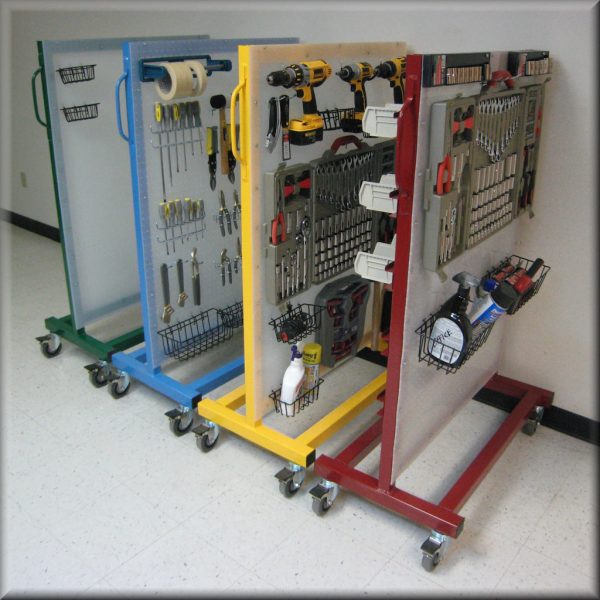Industrial carts may seem like simple tools, but their design can significantly impact operational efficiency. Stainless steel industrial carts, often overlooked, play a crucial role in streamlining production operations across various industries. These carts are particularly valuable in the food, pharmaceutical, and medical sectors, where efficient material movement is essential.
To determine the ideal industrial carts for your production process, several key factors should be considered. While specifics may vary based on industry and finishing processes, here are some fundamental qualities to look for in an industrial cart.
The primary purpose of an industrial rolling cart is to facilitate the easy movement of large product loads. Ensure the cart’s capacity aligns with your specific needs. Heady-duty carts designed for moving extremely large or heavy parts are crucial for industrial applications. The ideal capacity depends on your industry and the type of materials the cart will transport.
- Ease of Movement
An effective industrial cart should be easy to move. Seek out carts designed with caster wheels that not only facilitate smooth rotation but also empower effortless movement in multiple directions. The strategic inclusion of these wheels allows operators to navigate with precision between diverse production points, enhancing overall workflow efficiency and promoting a seamless transition between different stages of the manufacturing process.
- Strength and durability
Rugged construction is a prerequisite for any industrial cart. It should be strong enough to withstand the weight and stress of a full-parts load in challenging production environments. Materials like grade 304 stainless steel offer high tensile strength and corrosion resistance, ensuring the cart can withstand harsh manufacturing conditions for extended periods.
- Industry-Specific Features
Consider industry-specific requirements when selecting an industrial cart. Different sectors and products may demand unique design features. For example, industries with sterile parts requirements may need carts with plastic coverings to prevent contaminants. Industries focusing on faster part drying might require carts with open designs to maximise airflow. Customising carts to meet specific industry needs ensures optimal functionality.
- Ease of Cleaning
Maintaining cleanliness and compliance with industry regulations is crucial. Choose a cart designed for easy cleaning, free from nooks and crannies that might be challenging to sanitize. Stainless steel utility carts are often preferred for their ease of cleaning and resistance to corrosion caused by exposure to various manufacturing chemicals.
- Cost-efficiency
While investing in a high-quality industrial rolling cart is essential, it's crucial to consider long-term cost-effectiveness. Choosing durable materials and construction minimises the need for frequent replacements, reducing costs over time. Additionally, selecting a cart with features that align with your production needs ensures that you get value for your investment.
- Adaptability to Varied Environments
An ideal industrial cart should showcase adaptability to different working environments. Consider carts that can seamlessly transition between various settings within your facility. This adaptability ensures that the cart remains versatile, and capable of navigating through distinct operational zones with ease. Whether it's moving through temperature-controlled areas or spaces with specific cleanliness requirements, an industrious cart designed for adaptability contributes to overall operational efficiency.
Selecting the right industrial rolling cart is a decision that significantly impacts material handling efficiency and overall productivity. By prioritising factors like capacity, ease of movement, durability, industry-specific features, and ease of cleaning, businesses can make informed choices that align with their unique production requirements.
Conclusion
Customising industrial rolling carts based on specific industry needs allows companies to customise solutions that enhance operational efficiency. Whether it’s preventing contamination, maximising airflow, or facilitating fast drying, a well-designed cart becomes an indispensable asset in industrial production.


